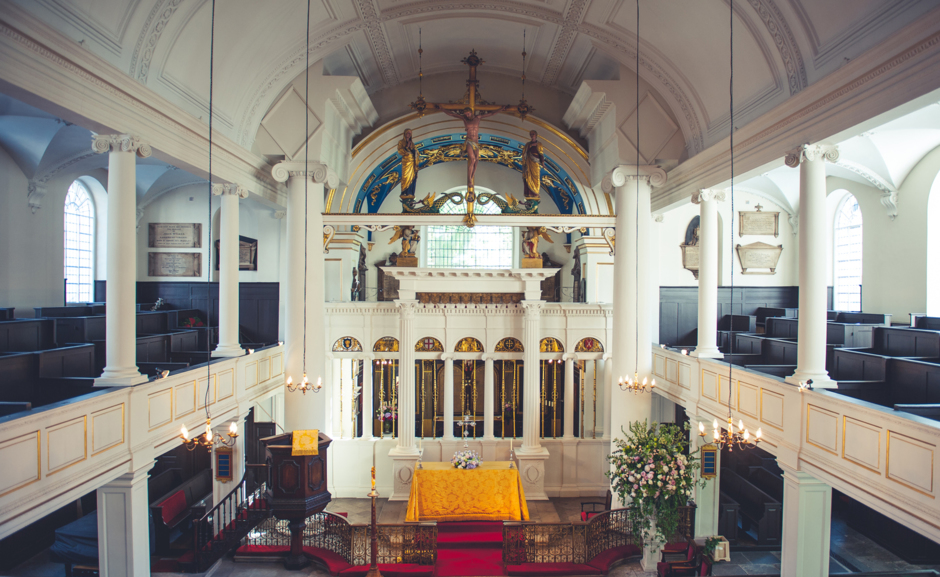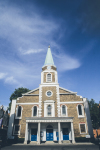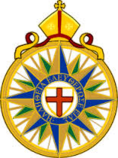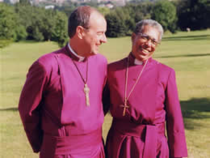
THIS WEEK
SUNDAY 28th July
11am Sung Eucharist -
The Ninth Sunday after Trinity
W.A.Mozart - Missa Brevis in
B flat K275
Gioachino Rossini -
O salutaris Hostia
J.S.Bach - Toccata in D minor
TUESDAY 30th July
1.10pm Mayfair Organ Concert
at St George’s
Matilda Johnston
(Royal Academy of Music)
Max Reger - Second Sonata in D minor op. 60: 1. Improvisation
Camille Saint-Saëns -
Fantasy in E flat major
Johann Sebastian Bach -
Prelude & Fugue in E minor
BWV 548
Louis Vierne - Scherzo & Finale
from the Second Organ Symphony op.20
WEDNESDAY 31st July
7.30am Morning Prayer
(online - www.facebook.com/
SUNDAY 4th August
11am Sung Eucharist - The Tenth Sunday after Trinity
W.A.Mozart - Missa Brevis in
B flat K275
Gioachino Rossini -
O salutaris Hostia
J.S.Bach - Toccata in D minor
CHAPEL OPENING TIMES
The Chapel is usually open to visitors Monday - Friday 8am to 3pm.
The Chapel is also open on
Saturdays for Occasional Offices, and
Sundays for the 11am Sung Eucharist.
ACCESSIBILITY
Step-free access to the Chapel is via a ramp through the main entrance. Please arrange in advance by contacting the Chapel office.
Audability: The Chapel's soundsystem is suitably fitted with
a loop system for pews directly
beneath the south gallery.
What is Anglicanism?
The Anglican Church is an affiliation of independent national or regional churches in full communion with the Church of England (which may be regarded as the “Mother Church” of this worldwide family). So, more accurately it should be refered to as the Anglican Communion. There are currently 77 million Anglican Christians in the world. The Archbishop of Canterbury, the most senior archbishop of the Church of England, whilst having no formal authority outside his own English jurisdiction, is recognised by the churches of the Anglican Communion as a symbolic and historic focus and he is honoured as being “first amongst equals” by the other archbishops.
While Anglicans acknowledge that the repudiation of papal authority by Henry VIII of England resulted in the Church of England existing as a separate entity, they also believe that it is in continuity with the pre-Reformation Church of England. By the end of the 17th century the Church of England was describing itself as both Catholic and Reformed – it maintained the creeds and threefold ministry of the deacon, priest and bishop and also outlined its theological disagreements with the Roman Catholic Church but without following the influence of any particular Protestant Reformer. One reformation historian, MacCulloch, comments on this situation by saying that the Church of England “has never subsequently dared to define its identity decisively as Protestant or Catholic, and has decided in the end that this is a virtue rather than a handicap”.
Consequently there is a very wide divergence of opinion and worship-style to be found within Anglican churches – Catholic, Liberal, Evangelical – and everything in between. Traditionally the Anglican Church has been termed a “broad church”, a large home in which people can discover somewhere to worship, learn and find friendship. The advice of St Augustine rings true to Anglicans: “in the primary things, unity; in the secondary things, generosity; in all things, charity”. Worship is most important for Anglicans and, indeed, the English Reformation is best known, not for drawing up dogmatic documention but for creating a book of common prayer. It is as if, instead of Anglicans wanting people to sign on dotted lines, they prefer to offer them a prayer book, inviting them to join in and to learn who they are, and what they believe, by immersing themselves in their liturgical landscape. Because Anglicans have a high doctrine of the Mystery of God they have a defined tradition of music, poetry and art which both enriches their worship of God and teaches human souls to fly nearer the divine reality God, unveiled in his body-language and self-portrait, Jesus Christ.
The four defining points which focus Anglican belief, identity and practice have been identified as:
- The Holy Scriptures of the Old and New Testaments, as “containing all things necessary to salvation”, and as being the rule and ultimate standard of faith.
- The Apostles’ Creed, as the baptismal symbol: and the Nicene Creed, as the sufficient statement of the Christian faith.
- The two sacraments ordained by Christ himself – Baptism and the Supper of the Lord – ministered with unfailing use of Christ’s words of institution, and of the elements ordained by him.
- The historic episcopate, locally adapted in the methods of its administration, to the varying needs of the nations and peoples called of God into the unity of his Church.



